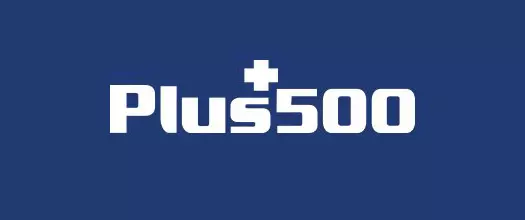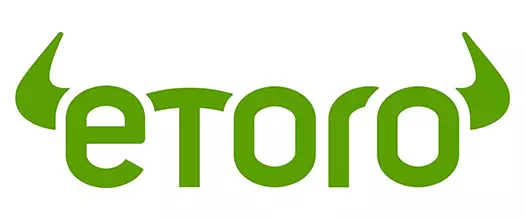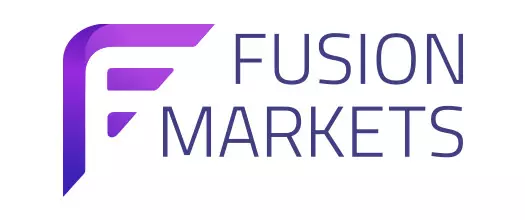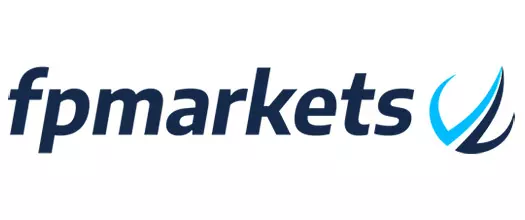- Jump to:
- Main features of the best Italy Forex brokers
- Forex Legislation
- Financial Regulators
- Payment Methods
- Trading Software
- Mobile Trading
- FAQ
Our team of expert traders tested many regulated and trustworthy forex brokers that accept traders from Italy and compiled a top list of the best ones. Each broker operating in Italy received a quality score based on several factors, including Trustpilot rating, regulation, fees and commissions, available trading platforms, customer service, and more.
 Plus500 USThis content applies only to Plus500 US and clients from the United States. Trading futures involves the risk of loss.
Plus500 USThis content applies only to Plus500 US and clients from the United States. Trading futures involves the risk of loss. eToro61% of retail investor accounts lose money
eToro61% of retail investor accounts lose money Fusion Markets74-89% of retail's CFD accounts lose money
Fusion Markets74-89% of retail's CFD accounts lose money FP Markets73.85% of retail investor accounts lose money
FP Markets73.85% of retail investor accounts lose money Global Prime74-89% of retail CFD accounts lose money
Global Prime74-89% of retail CFD accounts lose money Pepperstone75.5% of retail investor accounts lose money
Pepperstone75.5% of retail investor accounts lose money
Below you can find a comprehensive comparison table of forex brokers for traders in Italy. We rank them based on several factors, including regulation, spreads and commissions, Trustpilot rating, trading instruments, trading platforms, and deposit and withdrawal methods.
Our team has thoroughly evaluated all brokers listed below using TradingPedia’s exclusive methodology.
Main features of the best forex brokers in Italy
- Brand
- Trading platforms
- Minimum deposit
- Regulations
- Trading instruments
- Spreads
- Leverage for Forex CFDs
- Leverage for Crypto CFDs
- Leverage for Indices CFDs
- Deposit methods
- Withdrawal Methods
- Commission per Lot
- Contact details
Italy does not have a huge Forex market, especially when compared with some European countries such as Germany and the United Kingdom. Nor does it have many online brokers that offer foreign exchange trading. At the same time, regulation seems to be strict and the business environment is not the most attractive in Europe. Still, Forex is very popular among Italian traders, and its popularity is expected to grow even further in the coming years.
Being a member of the European Union, Italy is a modern, safe country with a relatively strong economy and an excellent geographic position. Unlike other economies in Europe, the country did not benefit from the introduction of the euro. Italy went through serious economic trouble and is still facing certain risks. Forex traders should understand that, although Italy is among the most industrialised nations in the world, it also has regions plagued by poor infrastructure, high unemployment, and poverty.
Yet, local traders are highly interested in the foreign exchange market, which is decentralised and not affected by any local conditions. Currency rates, on the other hand, fluctuate, and, in order to be successful, traders should be able to access their trades quickly and close and open positions whenever they wish. For this, Italian traders need to choose a safe and reliable Forex broker that offers fast execution and favourable trading conditions.
Italian forex legislation
The Forex market is legal in Italy, and Italian citizens may access it freely. The activities of buying or selling currency pairs, speculating on their prices, and making a profit using leverage are not illegal. The local financial markets regulator has forced multiple binary options brokers to close their offices in the country, as this type of investment is considered risky. The same cannot be said for Forex brokers, however.
The foreign exchange market is quite interesting in Italy – although trading currencies is popular, there are not many Italian Forex brokers. Following the implementation of the euro and the economic crisis, the Italian economy was hit hard. Many brokers decided to relocate to countries with more favourable conditions, such as Cyprus or the United Kingdom. Today, there are just a couple of Italian Forex brokers – all other firms that are big in the country are actually based in other jurisdictions in the EU.
According to current regulations, FX brokers need to be fully licensed by the Italian regulatory body to operate in the country, CONSOB (Commissione Nazionale per le Società e la Borsa). However, brokers that are licensed in other countries in the European Economic Area (EEA) are also authorised to offer their services to traders based in Italy. Based on their licence, Forex brokers simply need to register in Italy and open a local office.
This is allowed by the Markets in Financial Instruments Directive, or MiFID, which is the main piece of European legislation that controls and regulates the financial markets. MiFID provides Forex traders with a high level of protection, although this also depends on the country where the broker is licensed and registered. For instance, all brokers need to guarantee some form of compensation should they declare insolvency.
The compensation is a refund of traders’ deposited funds and its maximum limit may vary, depending on the licence-issuing authority and the local compensation fund. For instance, if the broker is licensed by the Financial Conduct Authority in the UK, clients can receive reimbursement of up to £85,000. Brokers that hold licences from the Cyprus Securities and Exchange Commission (CySEC) are also required to satisfy repayment claims in the event of bankruptcy – if they fail to do so, clients are refunded up to €20,000 or 90% of the covered investor’s claim, whichever is lower.
Authorised Forex brokers also comply with the minimum capital requirements, which also vary. Moreover, firms need to keep their funds and their clients’ funds in segregated bank accounts. Once again, these requirements provide traders with good security, and their funds are protected at all times. Most brokers charge very small spreads on trades – between 0.1 and 2 pips for major FX pairs.
Italian financial regulators
The main authority responsible for the regulation of the financial markets in Italy is Commissione Nazionale per le Società e la Borsa (CONSOB), which translates as the National Commission for Companies and the Stock Exchange. In fact, the commission also regulates the only stock exchange in the country, Borsa Italiana, which was established in 1808.
CONSOB was founded in 1974, when authorities decided that the country needed a separate agency to monitor the securities market. As a result, some of the duties and functions of the Italian Ministry of Treasury were assigned to the new authority. In 1983, the agency was given the power to protect public savings, while in 1985 it became autonomous. Now, CONSOB is an agency under the Ministry of Economy and Finance and has the authority to audit securities brokerage companies and monitor insider trading.
The agency authorises the activities of financial markets and is responsible for issuing licences to participants. It monitors how operations are conducted – whether financial intermediaries provide fairness and transparency – and it penalises any unfair conduct, including insider trading, financial fraud, and different scams. CONSOB also regulates all services and operations of financial intermediaries.
Italian forex payment methods
When searching for a reliable Forex broker in Italy, traders should consider the payment options offered by brokerage firms. Suitable online brokers are those that process deposits and withdrawals through the most popular payment methods in Italy. Just like in most of Europe, credit and debit cards are the most widely used way to pay online here.
This includes internationally accepted cards such as Visa, Mastercard, American Express, and Discover, although AMEX and Discover are less popular in Italy. Most locally issued cards, also Visa or Mastercard, can be used as well. Depositing by card is secure and almost instant, but traders should know that withdrawing their funds may take a bit longer – anywhere from three to five business days.
Another fast, secure and convenient option is to fund your trading account via an e-wallet. Most of the major digital wallets can be used in Italy, so Italian traders can choose from Skrill, PayPal, Neteller, and even less popular options such as the Russian e-wallet WebMoney. Traders who choose to use a digital wallet would also be able to withdraw their money within 48 hours.
The vast majority of Forex brokers, however, offer bank transfers for deposits and withdrawals. This may be the safest and most reliable way to transfer money online, but it also comes with higher fees. In addition, traders should know that their withdrawal may take longer to reach their bank accounts. Of course, bank wire, SEPA or Western Union transfers may also be offered, while some Forex brokers provide their Italian clients with locally available payment options such as Neosurf prepaid cards, Postepay payments, and Sofort.
Popular trading software in Italy
Choosing the best Forex trading platform may not be easy, especially for beginner-level traders who are just entering the world of Forex. The foreign exchange market is indeed a great entry-level option for new traders, but it has its specifics. It is linked with high risk, it is very volatile, and it should be accessed only by individuals who know what they are doing. To do that, however, they need the services of a good, respected Forex broker and functional, fast-performing trading software.
For most traders – in fact, for more than 90% of all Forex traders around the world – this perfectly describes MetaTrader 4. This software was released in 2005 by Cyprus-based company MetaQuotes Software, and it specifically caters to Forex traders. The platform is suitable for both novices and experienced traders, although there are types of software that may be better for professionals. It features plenty of convenient tools, more than 20 built-in indicators, and automated trading options. MetaTrader 5, on the other hand, is preferred by those who focus on stock trading.
Traders based in Italy can also try another relatively popular platform, namely cTrader. The award-winning software offers advanced, customisable charts and even more technical indicators. It also supports 14 different languages, including Italian. Traders can open multiple accounts and enter several trades – they will be processed at once. Other platforms that can be used for Forex trading include TradeStation, NinjaTrader, ZuluTrade, and many others.
Mobile trading in Italy
One of the most important things for traders nowadays is whether the online broker offers an intuitive and fully functional mobile app. Mobile trading is quickly growing, including in Italy, thanks to the rapid development of mobile technologies and the introduction of faster and more powerful smartphones than ever before. Italians, in particular, love their mobile phones – according to 2013 data, Italy ranked fifth in Europe for mobile penetration (number of mobile devices per 100 citizens).
When choosing an online Forex broker, traders should check whether the firm offers a trading app for their device. Luckily, most brokers have native apps for both iOS and Android devices, and they can be downloaded and installed for free from the App Store or Google Play. Traders should also check whether the app is available in Italian and whether local support is offered.
Once they open the broker’s app on their phone or tablet, Forex traders can log in or register a new client account, make a real-money deposit, or test the application with a demo account. Those who opt for a live mobile account can access all markets and trading instruments supported by the broker, open and close positions, manage their account, and more.









